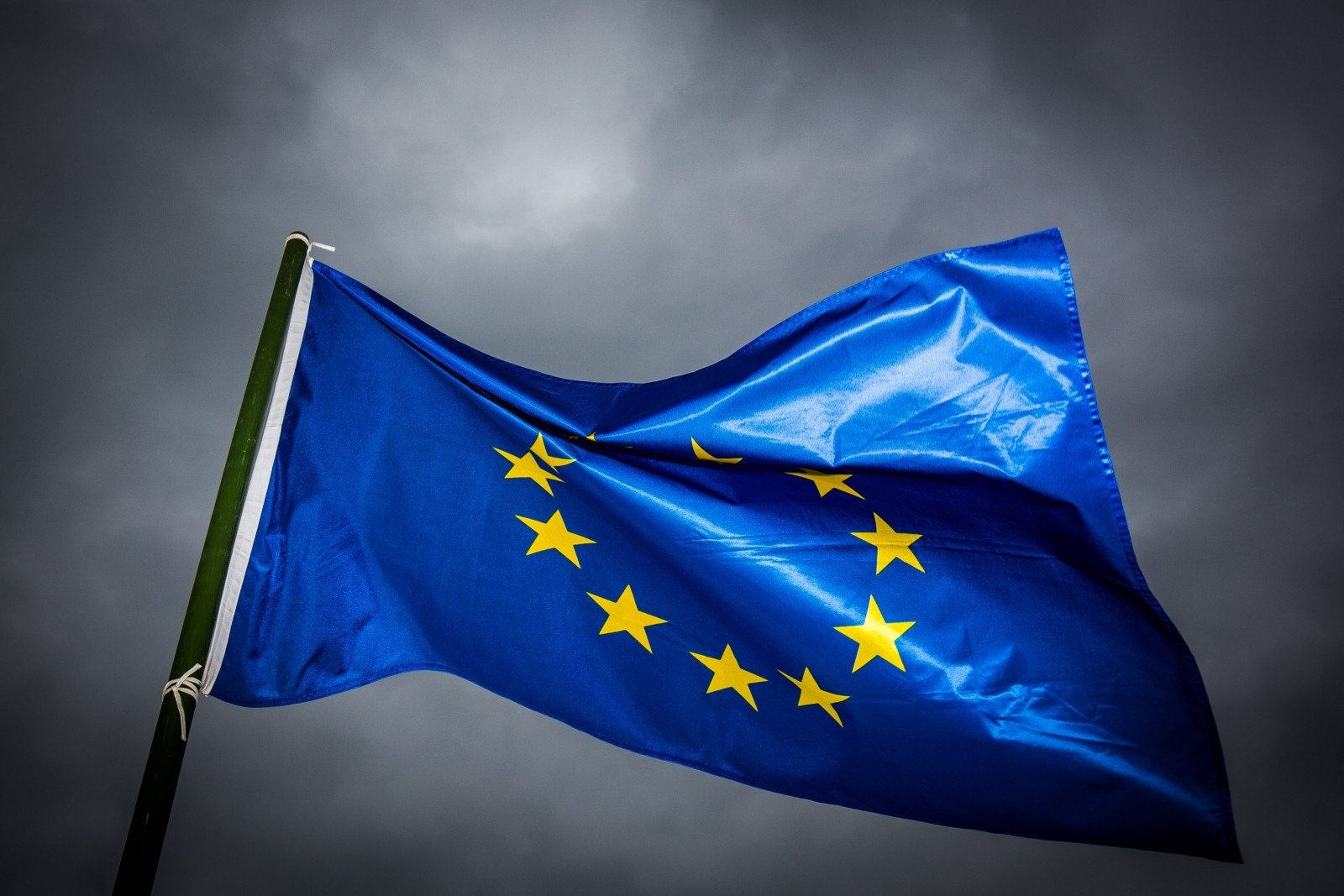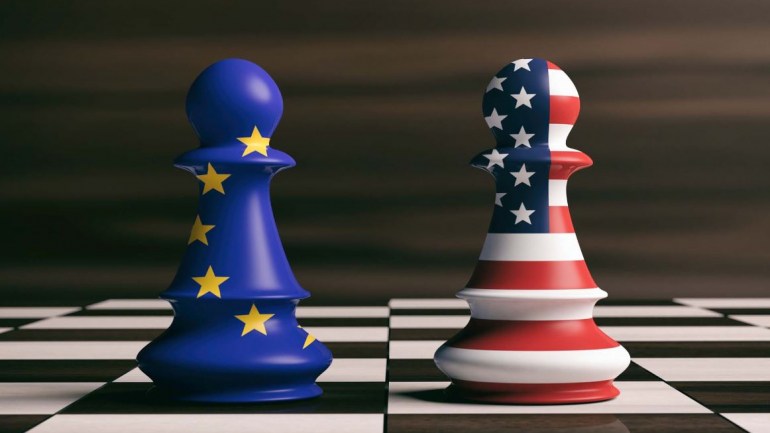
2019 is shaping up to be an exciting, if worrisome, year for Europe. While everything seems to be slowing down in preparation for the eventual hand-over of institutional positions, time never stands still on the continent, and there are many things happening over the coming 12 months. These are the key things to look at in the upcoming year.
The battle for Europe’s future
The European Parliamentary elections will be the single most important and hardest fought political event for the European Union this year, with many highlighting that Europe’s very future could be at stake and that we could see the most divided European Parliament yet.
Aside from the possibility of an increase in far-right, and even far-left MEPs being elected to Europe’s parliament, there are a number of issues that will have a strong effect on the results in May.
From the unresolved youth unemployment crisis across the EU27 to mounting distrust of the European political system across the continent, as well as the lingering effects of the Eurozone crisis, there are many factors that will play a role in shaping how people vote, should they even choose to.
The voter participation rate will be closely watched when the time comes, and we are all asking ourselves: Will the downward slide in voter participation continue? Most predictions presume so; however, we shouldn’t be entirely sure that this is the case, with a resurgence of pro-European platforms in the EU27 and even populists having moved their positions away from being out-and-out against the EU.
The En Marche – ALDE alliance will likely carve a slice out of the mainstay centre-left S&D party, whilst also inflicting some limited electoral damage to the ruling EPP party in a way not dissimilar to En Marche’s domestic success in 2017.
Alongside this, the far-left and right-wing populist factions will also be looking to take advantage of the populist upswing to impose itself on the S&D and EPP’s voter share, and to champion the sovereignist causes they share.
Should this happen we will see a swing away from the traditional European groupings, with politicians such as Viktor Orban’s Fidesz likely to defect and transfer the allegiance of their national parties to the EP’s populist groups, and while members within the EPP want to oust Orban, they may not want this in a weakened position.
While the resurgence of pro-EU sentiment following Brexit and Macron could prove to have a strong influence on the result, the anti-EU rhetoric in countries such as Hungary and Poland will likely be equally, if not more, influential.
However, this anti-European sentiment could actually result in abstention rather than a populist vote, whilst simultaneously galvanising both the pro-European youths within these countries and those who want nothing more than to give their domestic leaders a bloody nose.
The likely result: An increase in the Liberal, pro-European vote share, alongside a similar increase in populist representation on the European level as these parties begin to take control of the European debate.
Macron’s forward march stalls?
Following a four-week period of rioting in France that has proven disastrous, you would be forgiven for thinking that his addresses following on from this period would have been used to calm tensions and create space to breathe and reassess.
However, his new year’s address surprised many political commentators with its combative nature, and his will to drive forward his domestic plans; but can the same be said of his work on the European Union?
Unfortunately, his battle for European reform faces an even starker battle than his domestic ones, with the new Hanseatic League having provoked irritation in their opposition to his plans for increased centralisation of the European economy, as well as resistance from other parties to his proposals for deeper military and political cooperation.
On top of these, the European elections will be a litmus test of his presidency, and any failure could prove to be his first major pitfall, with ramifications likely to be felt during the 2022 French elections.
With his party trailing behind Le Pen’s Rassemblement National and Melenchon nipping at his heels, and with Macron in need of finding success on the European level, this is a key junction in his presidency and political career, and we will see more grand statements and grand gestures to convince his fellow leaders of the need to enact his reforms.
Unfortunately, while we await the official announcement on his “project for Europe”, we can predict that he will continue his big overtures towards his fellow Europeans in an attempt to convince politicians like Merkel to spend her remaining time in office supporting his drive to strengthen the European Union.
Whether he will succeed is not certain, however, the mounting populist backlash and his New Hanseatic opposition will likely apply the brakes to many of his reforms; and those that do make it through be diluted in a way that will prove to be disappointing and will muddy his illustrious portfolio.
The Migrant Crisis
The migrant crisis has been played up by populists despite records showing that the Migrant Crisis peaked in 2015; however, we shouldn’t ignore the effect that this discourse is having on national politics, how this is shaping mentalities, or how big a role this will play alongside the topic of national sovereignty and European reform.
Solutions for the so-called Migrant Crisis are likely to play a major role in 2019, not only within the context of elections and the attached promises but in the context of intra-European alliances and relationships that are already strained by the topic.
Jean-Claude Juncker’s end-of-year intervention is likely an example of how we will see these discussions being handled, where he reprimanded several EU member states for their “gross hypocrisy” over their hesitance in taking part in the increase of European Border officials, despite their loud demands for better protection of Europe’s borders.
Whether or not the increase of FRONTEX border officials by 10,000 is the solution, nobody can say for certain; however, the reactions to the proposed solutions from the politicians that based their political campaigns on being strong on immigration has displayed their hypocrisy clearly, with very big electoral talk and little to no will to engage in the discovery of constructive solutions.
What we can be certain of, however, is that the migrant crisis will rear its head again, only this time there will no longer be any search and rescue ships like the Aquarius to save the migrants, with a slight rise in the number of deaths likely to be seen as it was this year should no solution be found.
The likely continued fall in the number of migrants arriving in Europe could prove to reduce the rates of deaths, with controversial deals like the one between Italy and Libya to intercept migrants likely to intensify or to be emulated, adding to the deterrent that already exists.
The topic will feature heavily throughout the upcoming election campaign, specifically in the countries that border the Balkans as well as the southern states bordering the Mediterranean Sea and is likely to be the key to the success of the populist groupings.
However, the way in which liberals, moderates and socialists react to and engage with the discourse being will also shape how people vote and could go a long way in the attempts to convince Europeans that they can put their trust back in the parties that they have been drifting away.
Europe’s politicians must urgently find a more constructive way of engaging with the debate on migration, not only by engaging the populists on their rhetoric, but through public policy that highlights the benefits of migration, as well as finding a way to increase cross-cultural exchanges that will show many of these people that they have nothing to fear.
Rising Italian Influence
Italy is going to prove to be a far more influential political player within Europe than people expect.
Following on from the budget dispute with the European Commission, Matteo Salvini is currently reversing course on his hostility to the EU and the Euro, choosing instead to move closer to the centre in an apparent bid to appeal to more moderate mainstream voters.
However, on a European level, Lega Nord is still a member of the Movement for a Europe of Nations and Freedom, alongside the Rassemblement National, so the question of whether this is genuine or is nothing more than an electoral ploy to boost the upcoming election chances.
Salvini genuinely becoming more moderate as he learns the realities of governance should not be discounted, as criticising the political structure from the outside and learning how political governance actually works are two very different, and often illuminating experiences.
As a result of this, should Salvini be genuine in appealing to moderate voters, we could very well see Lega Nord pivot to the more mainstream European Peoples Party, taking on a more traditional right-wing political role, and taking advantage domestically of the eroding electoral support for Silvio Berlusconi’s Forza Italia.
Regardless of the path that Salvini takes, with polls suggesting a strong victory in the Italian EP elections, he will form the core of a movement that will be attempting to remodel the EU; whether that is in the populist image alongside Le Pen, a more moderate right-wing image alongside Juncker et al., or even in a style that we have yet to imagine, we will have to wait and see.
Foreign interference: the ever-present danger
Electoral Interference rears its head whenever the topic of an election is raised, and with no less than 7 European elections this year elections, it will be 2019’s un-killable political hydra.
With the on-going investigations surrounding Russian interference in the US elections, and the slowly building investigations into possible interference in the Brexit referendum, the question of what Russian actors may be planning will be on everybody’s minds.
States have had limited success in defending themselves against electoral interference, with French efforts during the 2017 elections being seen as an example to follow but we have not seen the huge drive to combat this issue we should have seen. Aside from a few laws being developed to combat fake news, there is still a huge amount of work to be done on the legislative level.
But more must be done before further damage can be done to democracy in Europe. Further laws must be put in place to safeguard European elections from the onslaught of fake news that has affected elections thus far; social media organisations must also be put on a shorter leash and held to account over how they affect the public consciousness.
Alongside this, the tense relationship between the EU, its member states, and Donald Trump is also going to lead to attempts from the president to influence these elections, as he did when he publically supported right-wing politicians such as Marine Le Pen and Nigel Farage.
Ultimately, European resilience to these attacks is what will be tested above all else during in the upcoming year, with further challenges to the European, liberal order continuing from within and without.
However, the European Union is a robust entity regardless of appearances, and the big question shouldn’t be “will Europe survive?” as many ask and many hope it will not, but “how will Europe look?” not only when the elections are over, but we find ourselves on 31 December 2019.
Will we be facing a populist Europe that is dismembering the liberal order alongside Donald Trump and Vladimir Putin? Or will the European liberal order live to reform another day?
Only time will tell. However, Europe is far stronger than people tend to believe, and it’s natural tenacity through crisis after crisis tells me that Europe will live to see another day.



